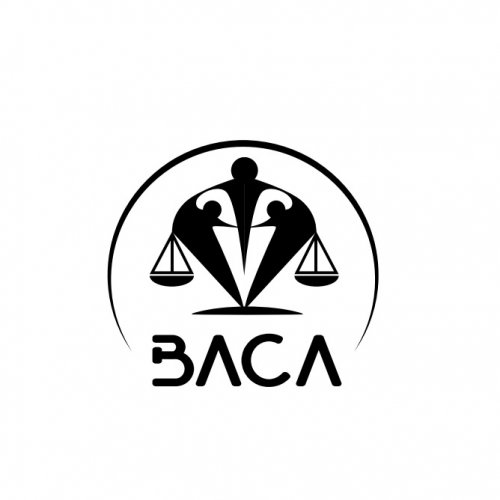Best Faith-Based Law Lawyers in Juba
Share your needs with us, get contacted by law firms.
Free. Takes 2 min.
List of the best lawyers in Juba, South Sudan
About Faith-Based Law in Juba, South Sudan
Faith-Based Law in Juba, South Sudan, predominantly refers to legal principles and practices that are influenced by religious beliefs. In a country where Christianity and indigenous beliefs play a significant role in everyday life, the integration of religious norms into legal frameworks can sometimes occur. This may intersect with customary law and statutory law, creating a unique legal environment. The influence of Faith-Based Law is evident in areas such as marriage, divorce, and family disputes, where traditional and religious values are often considered alongside civil laws.
Why You May Need a Lawyer
There are various situations in which individuals in Juba may require legal assistance in the field of Faith-Based Law:
- Marital Disputes: Legal support may be needed when religious and customary practices conflict with statutory laws during marriage or divorce proceedings.
- Inheritance Issues: Disputes over inheritance can arise when faith-based customs and formal laws provide differing guidelines.
- Family Mediation: Lawyers can play a crucial role in mediating family disagreements that are rooted in faith-based beliefs.
- Community Disputes: When religious practices and societal rules overlap, legal guidance can help navigate community-based disputes.
- Human Rights Complaints: Individuals facing discrimination based on religious laws might need legal counsel to address human rights issues.
Local Laws Overview
The legal system in South Sudan is a blend of statutory laws, customary laws, and religious laws. Some key aspects include:
- Equal Recognition: Both customary and statutory laws are recognized, allowing for faith-based interpretations in legal matters, especially in family law.
- Church Influence: Religious institutions can often play a role in dispute resolution, particularly in communities with strong church affiliations.
- Customary Courts: Many local disputes are resolved in customary courts, where leaders may use faith-based principles.
- Human Rights Obligations: South Sudan is bound by international human rights treaties, which can sometimes conflict with faith-based laws.
Frequently Asked Questions
1. What is Faith-Based Law?
Faith-Based Law refers to legal practices and principles that are derived from religious beliefs and customs, influencing personal and family-related legal matters.
2. How do Faith-Based and Customary Laws interact?
In Juba, customary laws often incorporate faith-based principles, and they are used alongside statutory laws to resolve disputes, especially in family matters.
3. Can Faith-Based Laws be challenged?
Yes, if they contradict statutory laws or human rights principles, they can be challenged in court.
4. What is the role of religious leaders in legal disputes?
Religious leaders in Juba often mediate disputes based on faith-based principles and can provide moral guidance and solutions.
5. Are Faith-Based Laws officially recognized?
While not formally enshrined in national law, they are often recognized in customary courts and community settings.
6. How do Faith-Based Laws affect women's rights?
Women's rights may be impacted by faith-based laws, especially concerning marriage, divorce, and inheritance, potentially conflicting with statutory protections.
7. Is legal representation necessary in Faith-Based legal matters?
Legal representation can be invaluable in navigating the complexities of cases where faith-based, customary, and statutory laws intersect.
8. What if my rights are infringed upon by Faith-Based Laws?
You can seek legal advice and potentially take the issue to statutory courts or appeal to human rights organizations.
9. Can non-Christians engage in Faith-Based legal practices?
Yes, various faiths may have their own customary practices that align with broader faith-based legal principles.
10. How is legal advice obtained?
Legal advice can be sought from lawyers experienced in both statutory and customary laws, as well as from organizations that specialize in rights advocacy.
Additional Resources
Several resources and organizations can offer guidance on Faith-Based Law in Juba:
- Local Bar Associations: Can refer you to lawyers with expertise in faith-based legal cases.
- Community Elders: Often provide insights and mediation services based on customary laws.
- Religious Institutions: May offer counseling and mediation for disputes arising out of faith-related concerns.
- Human Rights Watch South Sudan: Provides support for cases where faith-based practices conflict with human rights.
Next Steps
If you need legal assistance in matters involving Faith-Based Law, consider the following steps:
- Determine whether your issue falls under faith-based, statutory, or customary law.
- Seek legal counsel from an experienced attorney familiar with Faith-Based Law in Juba.
- Gather any relevant documentation or evidence related to your case.
- Consider mediation through a religious or community leader if your situation lends itself to an amicable resolution.
- If necessary, prepare to bring your case before customary or statutory courts to seek official judgment.
Lawzana helps you find the best lawyers and law firms in Juba through a curated and pre-screened list of qualified legal professionals. Our platform offers rankings and detailed profiles of attorneys and law firms, allowing you to compare based on practice areas, including Faith-Based Law, experience, and client feedback.
Each profile includes a description of the firm's areas of practice, client reviews, team members and partners, year of establishment, spoken languages, office locations, contact information, social media presence, and any published articles or resources. Most firms on our platform speak English and are experienced in both local and international legal matters.
Get a quote from top-rated law firms in Juba, South Sudan — quickly, securely, and without unnecessary hassle.
Disclaimer:
The information provided on this page is for general informational purposes only and does not constitute legal advice. While we strive to ensure the accuracy and relevance of the content, legal information may change over time, and interpretations of the law can vary. You should always consult with a qualified legal professional for advice specific to your situation.
We disclaim all liability for actions taken or not taken based on the content of this page. If you believe any information is incorrect or outdated, please contact us, and we will review and update it where appropriate.









